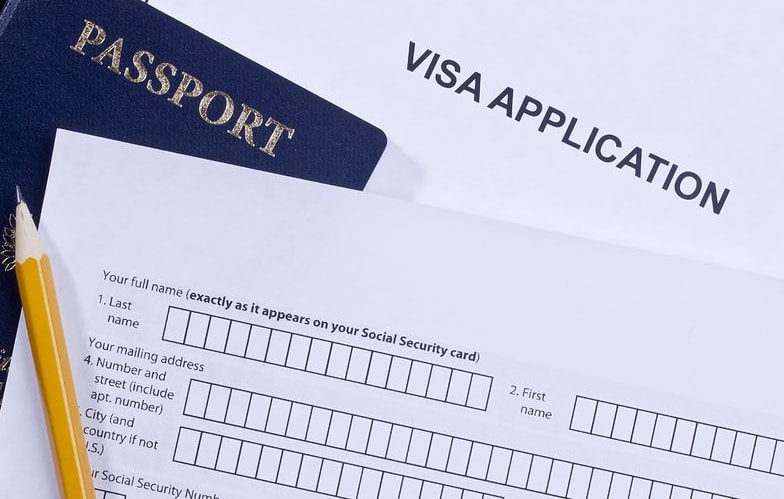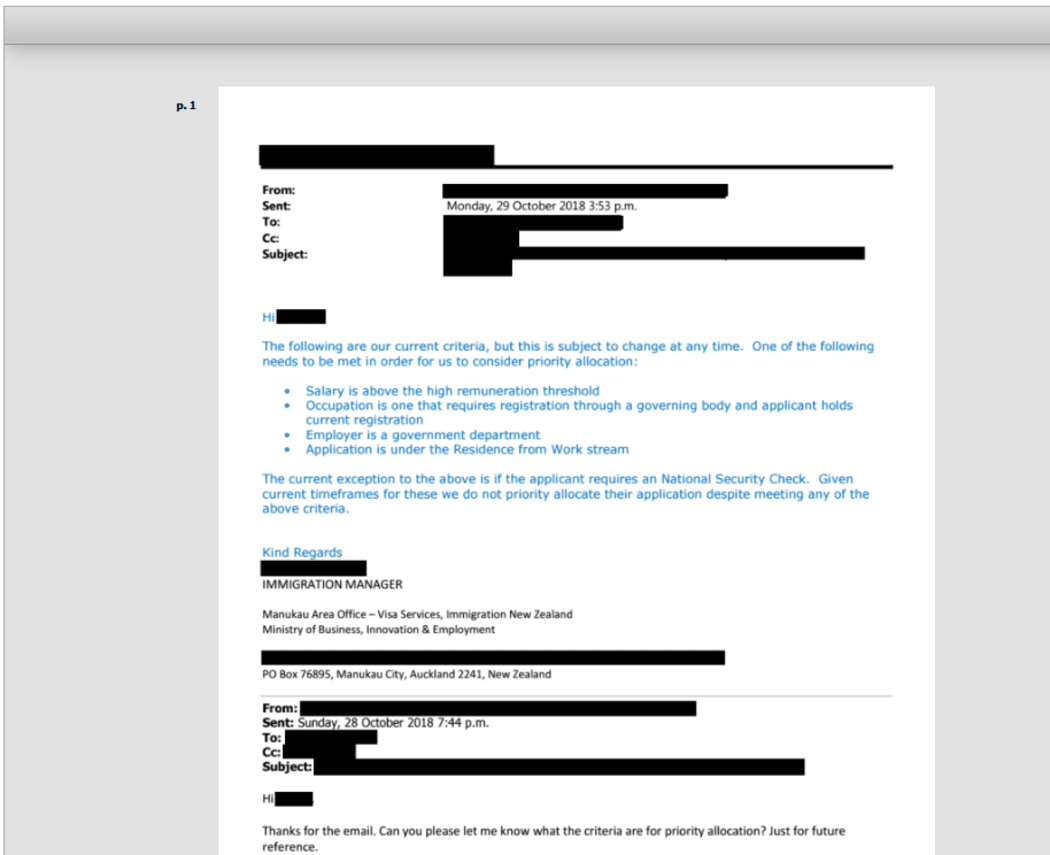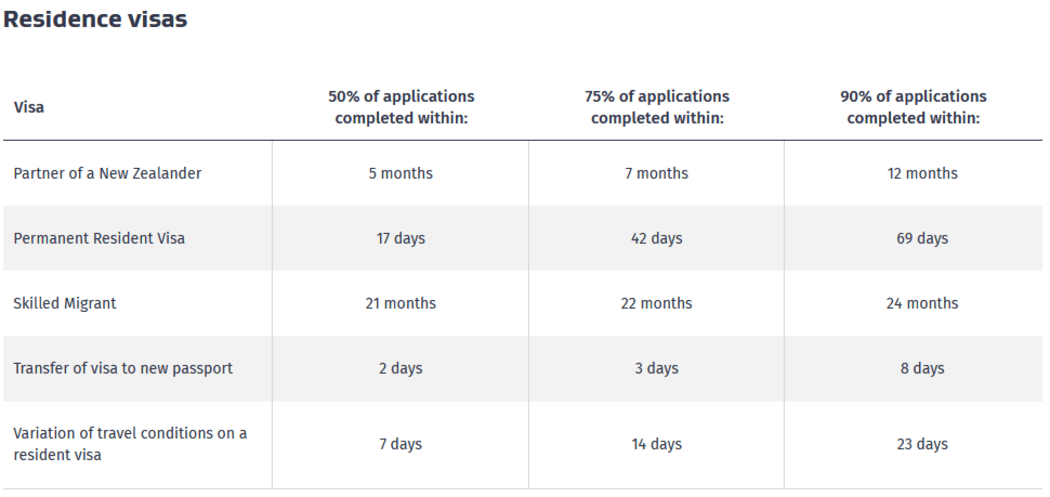The chief ombudsman has told Immigration New Zealand (INZ) to apologise for an unofficial strategy of cherry-picking highly-paid residence applications amid growing delays in visa processing.

Photo: 123rf.com
Migrants argue the agency only came clean about the criteria once they filed complaints to the government watchdog in early 2020.
For 18 months before that, it had informally prioritised skilled migrant category (SMC) applicants with an annual salary of at least $106,080, government jobs or roles needing occupational registration.
Chief Ombudsman Peter Boshier said that "Between July 2018 and 23 February 2020, INZ's allocation of applications in accordance with an informal priority criteria was unreasonable".
"The informal criteria were not published or communicated with applicants or potential applicants. Applicants were left in the dark, wondering what was happening to their applications as estimated allocation timeframes came and went [in some cases, by a year or longer]."
The unpublished criteria to fast-track certain applications have been used internally since the middle of 2018, replacing the "first-in, first-out" decision-making.

An email from INZ showing the policy was in place in 2018. Photo: Supplied
INZ told the ombudsman the criteria was developed by the residence management team and discussed with the national manager at the time.
Salary and occupational registration became official priority criteria last year and applicants before then only found out from other applicants and immigration advisers on social media, or through OIA requests.
Boshier told INZ to refund the application fees - minus administrative costs - of affected migrants who wished to withdraw their applications.
He also asked INZ to report back to him by 3 May on the action it would take, and within three months on the steps it intended to take to prevent similar issues from reoccurring.
Refunds have become a contentious issue, as residence applicants lost their jobs during the pandemic and tried unsuccessfully to get their fees back.
Almost 3000 people had received refunds in the 12 months to September, more than in the three previous years combined, and totalling nearly $1.4 million.
But INZ said it could not say how many people had been rejected.
About 35,000 applications are waiting to be processed in the skilled migrant and work to residence categories.
INZ figures show half of SMC residence applicants now wait more than 21 months, and one in 10 more than two years.

Skilled migrant waiting times. Photo: Screengrab
INZ agrees to apologise and refund
At the time the practice first became public, INZ said the majority of applications it allocated were based on first-in, first-out system, but it argued it had the prerogative to prioritise applications.
But the ombudsman found while there was discretion, the informal priority criteria were unreasonable - because it exceeded the limits of authority and lacked transparency.
"The act does not permit immigration managers to issue general instructions. Nor ... authorise managers to create internal, informal priority criteria that superseded the general instructions. There is a fine line to walk between a reasonable exercise of managerial discretion, within the limits of delegated authority, and exceeding that authority. In this case, the chief ombudsman considered that the line had been crossed.
"The chief ombudsman considered that there was a lack of transparency surrounding the informal priority criteria."
INZ said it accepted the findings and recommendations.
INZ border and visa operations national manager Stephanie Greathead said: "We absolutely accept that we should have been more transparent about the prioritisation criteria.
"We will be formally apologising to individuals who have made a complaint to the office of the ombudsman and a full refund will be given.
"I would like to take this opportunity to apologise to those who have made a complaint and the other applicants who have been impacted. For those who have lodged in application between July 2018 And February 2020 and the application has not been allocated for assessment, and they'd no like longer like to proceed with their application, a full refund will be provided."
The informal criteria came at a time of increasing visa volumes when INZ needed to make sure those highest skilled applicants did not have to wait in the long residence queue, she said.
"The rationale for the criteria was based on various indicators of value. So, one of the criteria is occupations that require registration as per immigration requirements, and the other was around twice the median wage. There is an inference around those occupations that require registration are of value to New Zealand, I've spoken about some of those - nurses, doctors, teachers. And remuneration is often used as an indicator of skill."
Dishonesty and lies: Migrants speak out
Greathead said that since January this year it had allocated about 1300 applications for assessment.
"Priority files are being allocated within two weeks of them being received and for applications for individuals in New Zealand who are in the non-priority queue, we are pulling applications for assessment from August 2019."
Migrants with applications from August 2019 say the wait is taking its toll.
Senior IT consultant Satish Bamal was one of those who complained to the ombudsman, but he said an apology would not fix the stress and frustration which INZ had caused him and thousands of others.
"They decided to be smart and dishonest and lie to applicants about their priority queue for two years, and the ombudsman took almost 15 months to come to a conclusion. Justice delayed is justice denied.
"Had I known the priority queue and how it will blow out non-priority applications, I would have applied for residency in Australia."
Refunds did not give those affected a fair shot or a decision on their application, which was what most of them wanted.
He feared the ombudsman's call for action to prevent similar issues from occurring again would fail because of obfuscation and inaccuracies.
Bamal pointed to a select committee meeting last week when an INZ official maintained the priority criteria only started in February 2020 - acknowledging the reality only after questioning by MP Erica Stanford.
"Another great example of being dishonest and lack of transparency is around the weekly updates which we used to get from the residence processing branch every Thursday/Friday. They now consider such requests as an OIA request and ask us to check the timeframe on the website which gets updated only once a month, and this month it has not been updated.
"This attitude from INZ is leaving the applicants in limbo. Not only this but INZ continues to build the wall up and up to hide their incompetence."
Anatoliy Goryachev from Kazakhstan said he and his partner, who works in healthcare, could have made different choices if INZ had been upfront.
"At [the] stage when we applied, we had no idea about the priority criteria they had applied because it was all done internally," he said.
"And despite you being unfairly treated, you still just have to wait. I can't see the light at the end of this tunnel."






